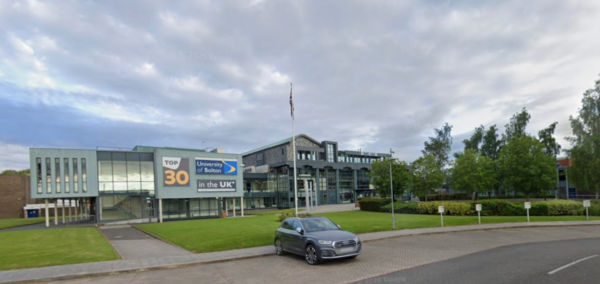
Exclusive: Cardiff University spent over £125,000 on security for pro-Palestine protests
The cost of policing such demonstrations has been widely debated
Cardiff University has spent over £125,000 on security for pro-Palestine protests.
According to data obtained by The Cardiff Tab via a Freedom of Information (FOI) request, Cardiff University revealed it spent £125,522.04 on security for pro-Palestine protests since 7th October 2023.
However, no data for security spending in 2025 was given.
This data provides insight into how the university manages both demonstrations on campus and the financial implications of maintaining security during these events, as the spending on security for pro-Palestine protests suggests that the demonstrations require considerable resources to manage.
The cost of policing such demonstrations has been widely debated, with Cardiff University facing significant pressures to balance campus safety with the “right to free speech [for] students” and peaceful protesting.
The Cardiff Tab recently revealed that Cardiff University’s total annual security expenditure has risen significantly since the 2021/22 academic year, spending £7.6m on security in three years.
Since the start of the Israel-Gaza conflict in 2023, pro-Palestine protests have been widespread across the UK, with students calling for their universities to take a stand. At the start of the protests students asked for their universities to “bury links to organisations that fund and run the ongoing systematic destruction of Palestine”, while others have sought out statements of solidarity from university leadership.
On the 19th February, pro-Palestine protestors clashed with a building company van on Park Place, outside of the university’s Students’ Union and Main Building during a demonstration, leading to more questions surrounding the safety of protestors at the University.
Talking about the FOI data, Cardiff Students for Palestine told The Cardiff Tab: “The FOI shows Cardiff University’s expenditure on security in relation to recent pro-Palestine protests. What it does not show is that this security expenditure is not funding for the protests, but instead funding for an intelligence-gathering campaign.
“As covered recently by Sky News and Liberty Investigates, the university has been sharing security information on protestors with South Wales Police. This funding went toward what amounts to spying on staff and students, and spying on their activities.”
The information referenced by Cardiff Students for Palestine relates to an investigation led by Liberty Investigates and Sky News, which outlines evidence that Cardiff University and a number of other Welsh universities disclosed information with the police via email, sharing information about protests, talks, and prayer vigils which took place on campus.
According to WalesOnline: “Staff from Cardiff University contacted police to confirm the names of any staff or students who had been arrested saying the university wanted to ‘support [any] bail conditions,’ and ‘consider any potential implications for [visa] sponsorship’ for a foreign member of staff.”
The investigation found that seven students and three staff members at the University have been subjected to disciplinary investigations in connection with activism, one of the highest numbers in the UK.
A Cardiff University spokesperson said: “We make no apology for investing in university security. It helps ensure a safe and secure environment for everyone in our community. University security provides a 24/7 service across the whole of the university estate – including all our student residences.
“The additional investment in security during the encampment was to ensure the safety of those within the encampment whilst maintaining security levels for other parts of the university campus.
“We reject the unsubstantiated claim that the additional spending was for ‘an intelligence-gathering campaign’ or that we used additional security to spy on our staff and students. We have always been clear; where appropriate, information is shared with internal and external partners, including the police. Posts made on public facing social media accounts are also occasionally shared with the police, and other authorities, to help protect the safety of everyone in our university community.
“We respect our students’ right to lawful and peaceful protest. We are committed to engaging in open and constructive dialogue with our students, and their student representatives, on a variety of issues including Gaza.”
Feature image credit: Instagram






















